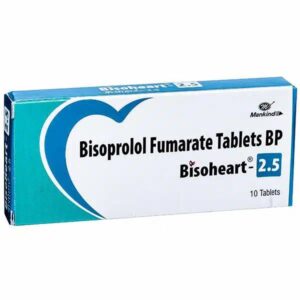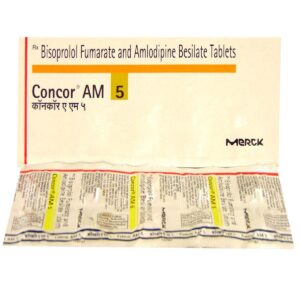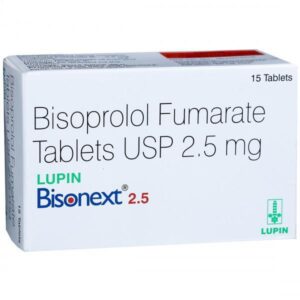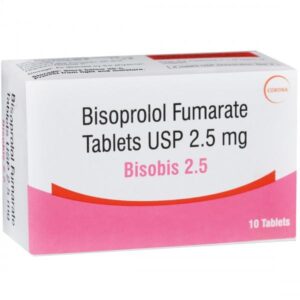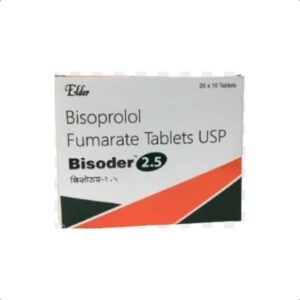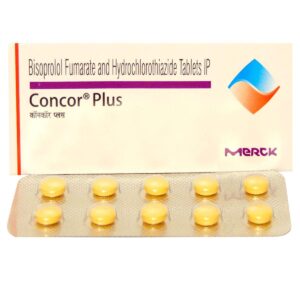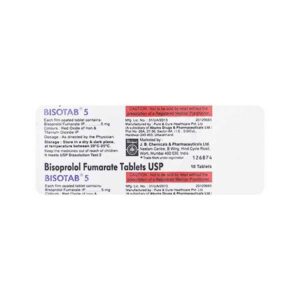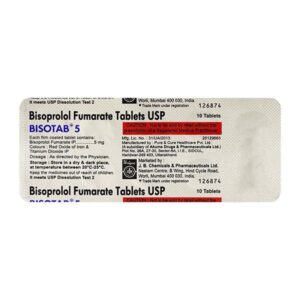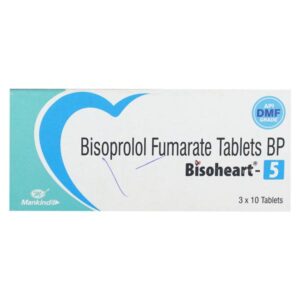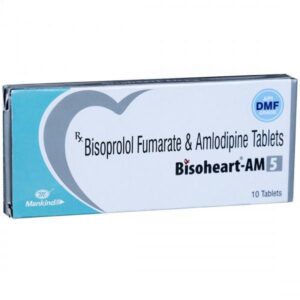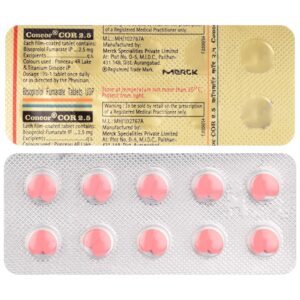BISOPROLOL
BISOPROLOL: Bisoprolol is a medication that belongs to a class of drugs known as beta-blockers. It is primarily used to treat hypertension (high blood pressure), angina (chest pain), and heart failure. Bisoprolol works by blocking the action of certain natural substances in the body, such as adrenaline, that can increase heart rate and blood pressure.
The medication is available in tablet form and is usually taken once daily, with or without food. The recommended starting dose for hypertension is 5 mg per day, which can be increased to 10 mg per day if necessary. For heart failure, the initial dose is usually 1.25 mg once daily, gradually increasing to the target dose of 10 mg once daily over a few weeks. The specific dosage may vary depending on the individual’s condition and response to treatment, so it is important to follow the doctor’s instructions.
As with any medication, bisoprolol may cause side effects. Common side effects include dizziness, fatigue, headaches, and cold hands and feet. These side effects are usually mild and temporary. Less commonly, bisoprolol may cause slow heart rate, low blood pressure, shortness of breath, depression, and impotence. It is important to promptly report any severe or persistent side effects to a healthcare provider.
Bisoprolol should not be abruptly stopped, as it may lead to worsening of symptoms. If discontinuation is necessary, the dose should be gradually reduced under the guidance of a healthcare professional to prevent any adverse effects. It is also necessary to inform the doctor about any pre-existing medical conditions, as well as other medications being taken, to ensure the safe and effective use of bisoprolol.


